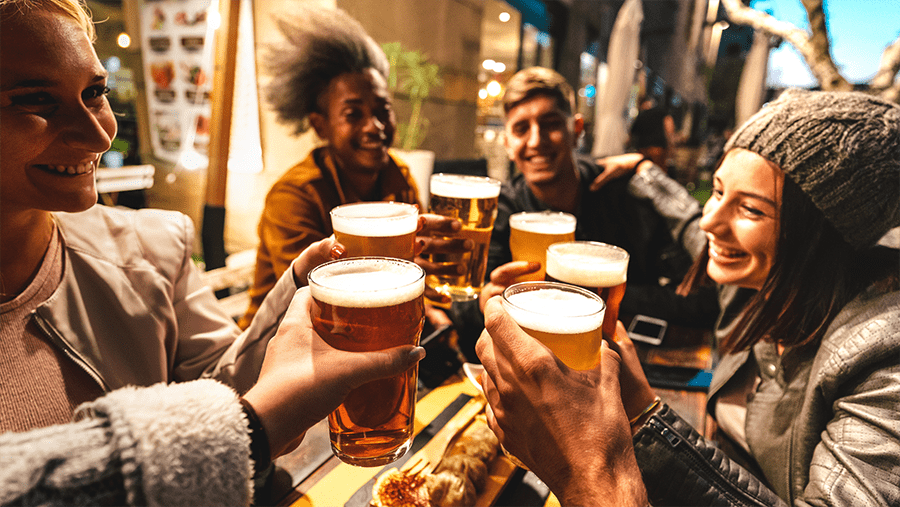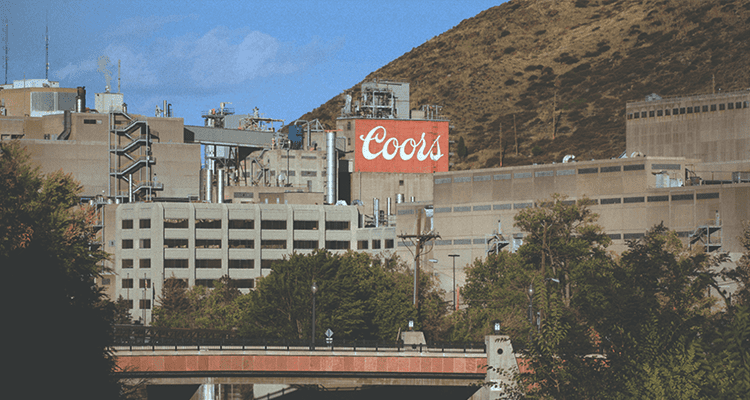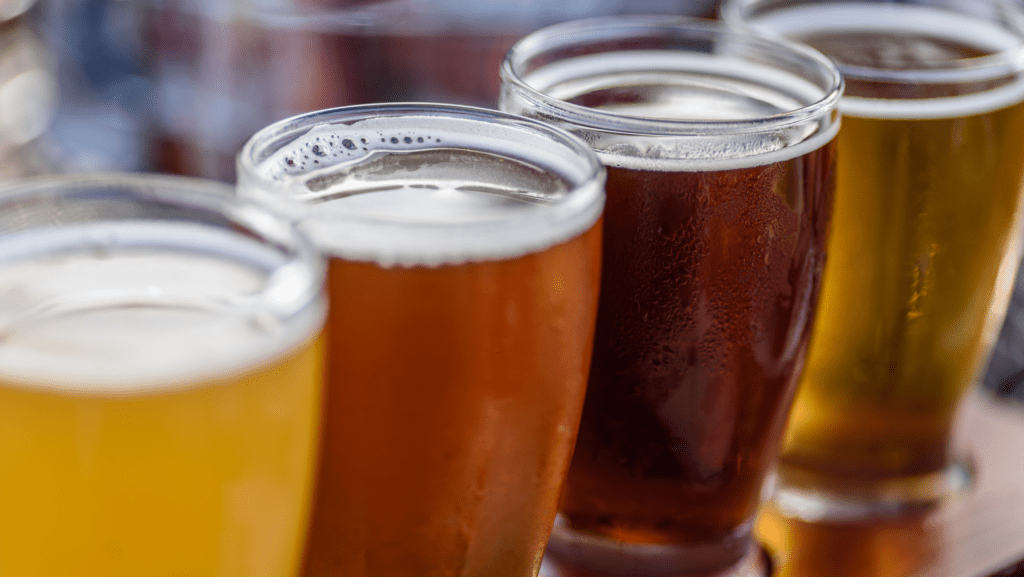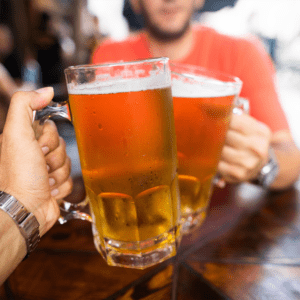In 2018, scientists snooping around inside Raqefet Cave in Israel caught an 11,000-year-old glimpse of humanity’s future.

Buried deep beneath the dry sands of time, they found a stone mortar encrusted with phytolith, a distinctive grain residue peculiar to the brewer’s craft. They conclude that we were making beer at least 6,000 years before we could write down the recipe.
“ …the Egyptians were producing beer on an industrial scale, a remarkable feat of ancient party planning.”
In the midst of the recent pandemic, archaeologists digging in the Egyptian holy city of Abydos discovered a 5,000-year-old reason to feel better. More than 300 earthenware vats march across 4,000 square feet of desert in 16 orderly ranks, each vessel held snugly within its own brick firebox. An ancient tannery? Pharoah’s laundry? Chemical analysis of remnants scraped from the ponderous pots told the tale. It was a brewery, and a big one.
Dating to roughly 3,100 B.C., the Abydos works could cook up nearly 6,000 gallons of beer at one time, enough to pour a pint for every seat at Coors Field. More than six centuries before the first stone of the Great Pyramid was muscled into place, the Egyptians were producing beer on an industrial scale, a remarkable feat of ancient party planning.
The earliest description of beer making was pressed into the face of a clay tablet sometime around 1900 B.C., a cuneiform brewer’s guide lately unearthed among the ruins of the ancient Sumerian city of Uruk. It’s a song, actually, thanking the beer goddess Ninkasi for making the Fertile Crescent more fun.
In 11 praiseful stanzas, the Hymn to Ninkasi describes in surprising detail a method for making beer using steps and ingredients that would be entirely familiar to modern brewers. “You are the one who waters the malt set on the ground,” gushed the ancient bard. “When you pour out the filtered beer; it is like the onrush of Tigris and Euphrates.” Indeed, who among us has not felt the onrush of Tigris and Euphrates after paying homage to Ninkasi? To the Sumerians, beer was “the divine drink,” a sacred gift of heaven, and the penalty for making it badly was to be drowned in a vat of your own skunky brew.
And you’re thinking, “So what?”
So beer, that’s what.

We’ve been hoisting a tankard since the dawn of civilization. Beer predates agriculture. Beer is basic to our species, like clothing and shelter, a genuinely universal human experience stretching across six continents and a dozen millennia. We taught ourselves to make beer, which has no practical use, long ages before we figured out the wheel, which has thousands of them. Beer is civilization, and our modern civilization is awash in it. As International Beer Day approaches, it’s only right and fitting that we give thought to the beer in our own lives, and raise a frosted glass in reverent gratitude for Ninkasi’s infinite blessings.
Yes, infinite, or close to it. Worldwide we drink about 49 billion gallons of beer annually, enough to fill Cherry Creek Reservoir with maybe a schooner to spare. The Czechs certainly do their part, guzzling an impressive 48.6 gallons per year each, followed at a safe distance by the Austrians and the Poles who individually account for about 35 gallons. The Subcontinent isn’t even trying, with Indians drinking a paltry three quarts each.
Americans hang tough in the middle of the pack at 28.2 gallons per Yankee. The Chinese drink just 7.6 gallons apiece, yet populous China consumes the most beer by volume, putting away 12 billion gallons a year, about 25 percent more than Chatfield Reservoir was designed to hold.
Americans collectively sip, slurp and spew some 6.3 billion gallons of beer each year, which is about 65 billion 12-ounce bottles, or 10.8 billion six-packs, or 812 million pony kegs, or 21.6 billion beer bongs, or 157 million bathtubs. The beer sector fuels 0.9 percent of the country’s GDP, and directly or indirectly supports 1.2 percent of American jobs.

Top tippling honors go to the parched people of North Dakota, who imbibe 45.8 gallons of beer per person per year, with second and third place going to New Hampshire and Montana at 43.9 gallons and 41.1 gallons, respectively. Connecticut (21.1) and Utah (20.2) trail the American pack and, stereotypes notwithstanding, your average Canadian drinks just 20.8 gallons of beer per year. Here in Colorado, we drink about 30 gallons per capita per year, but brew an impressive 120 million gallons, making the Centennial State, with major breweries like Belgium and Coors and more than 400 minor ones, 16th in the nation for beer drinking but third for beer making. The state holds one brewery for every 13,550 Coloradans, except in Boulder where there’s one for every 7,518. Evergreen charts a middle course with one brewery per 10,140 residents.

The world’s most expensive beer is ultra-rare Allsop’s Arctic Ale, custom brewed for an 1875 polar expedition and typically selling at auction for $5,000 a bottle and up. The world’s most potent beer is Snake Venom, a thick amber by Brewmeister of Scotland with a 67.5-percent-alcohol-by-volume bite. Budweiser is the most successful beer, the brand alone being worth $15 billion, but the world’s best selling brew is “Snow,” a Chinese domestic retailing for 49 cents a can.

Because Ninkasi loves you, she made beer good for us. People who profess to know say that beer is lousy with antioxidants, helps prevent kidney stones, lowers bad cholesterol and supplies lots of bone-strengthening silicon. What’s more, a chemical in hops called xanthohumol purportedly improves memory function, or something like that. Even so, it’s no secret that beer can cause problems if poured immoderately. In 1814, a catastrophic vat failure at the Horse Shoe Brewery in London’s West End unleashed a 15-foot-high wall of porter that devastated the poor neighborhood of St. Giles Rookery, killing eight. All of the dead were Irish, and authorities ruled the incident an Act of God.
Beer may have decided the fate of empires. Kaiser Wilhelm, the last King of Prussia, said, “Give me a woman who loves beer and I will conquer the world.” It’s not immediately obvious how one might facilitate the other, but it doesn’t really matter because Wilhelm never made good on his boast. Beer, on the other hand, never said anything and it conquered the world a long, long time ago.

Enkidu… drank seven jars of beer, his heart grew light, his face glowed and he sang out with joy.
—The Epic of Gilgamesh, Sumeria 2100 B.C.
